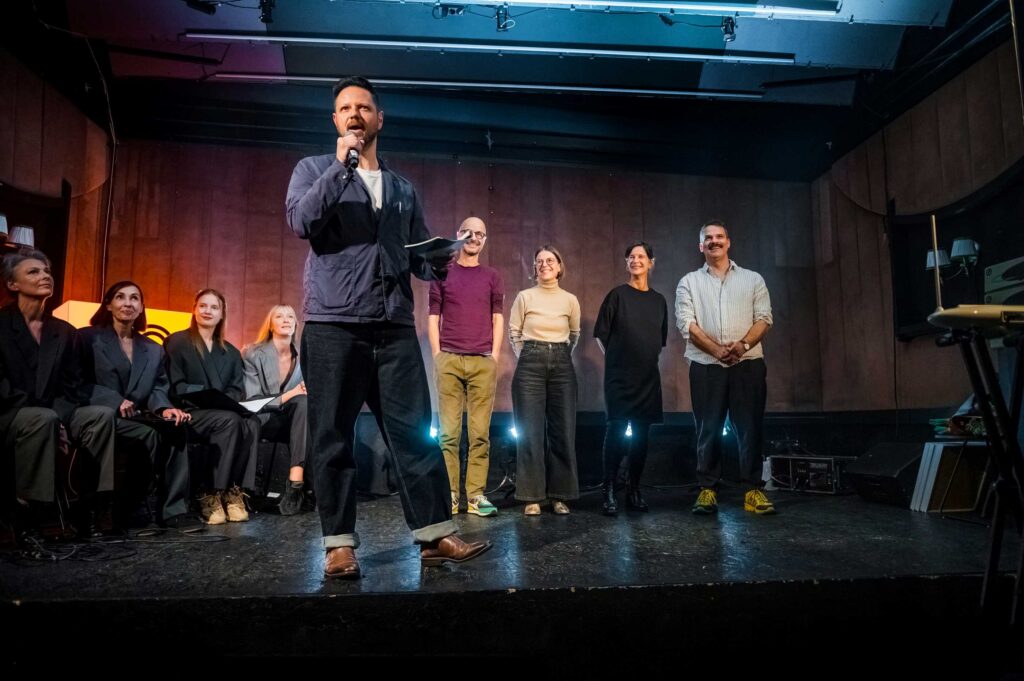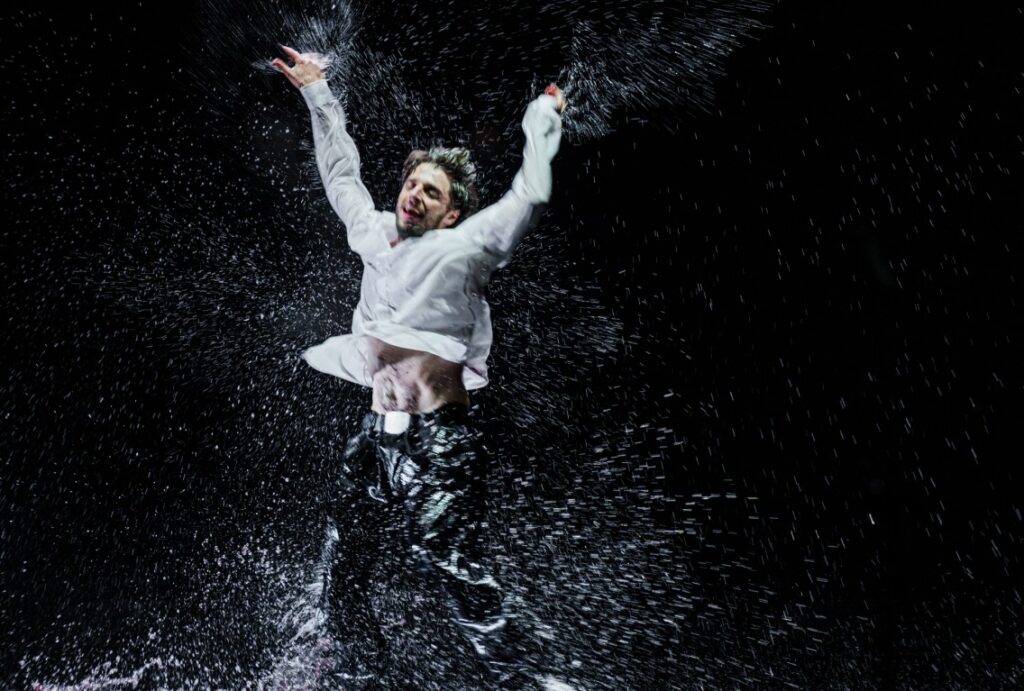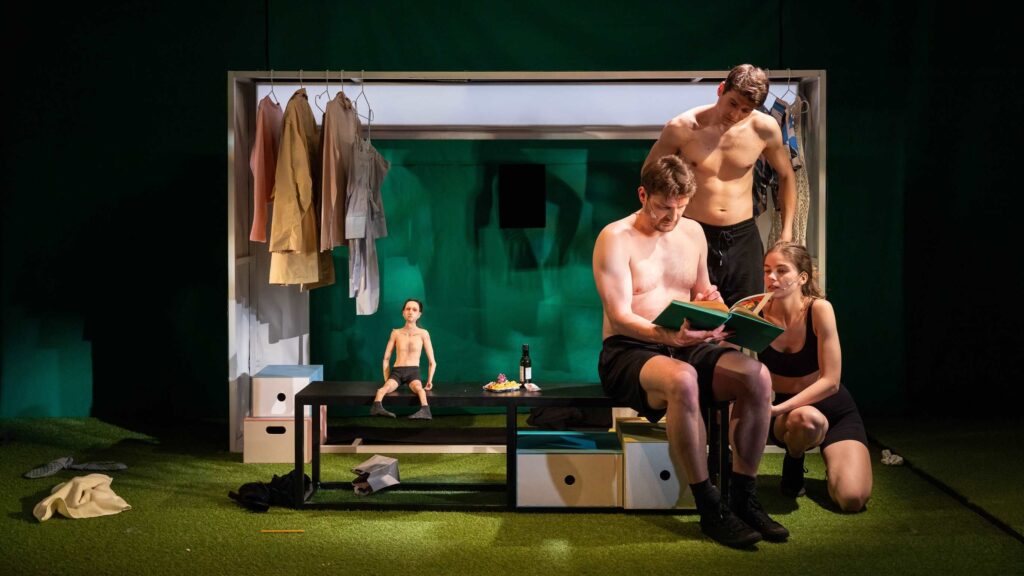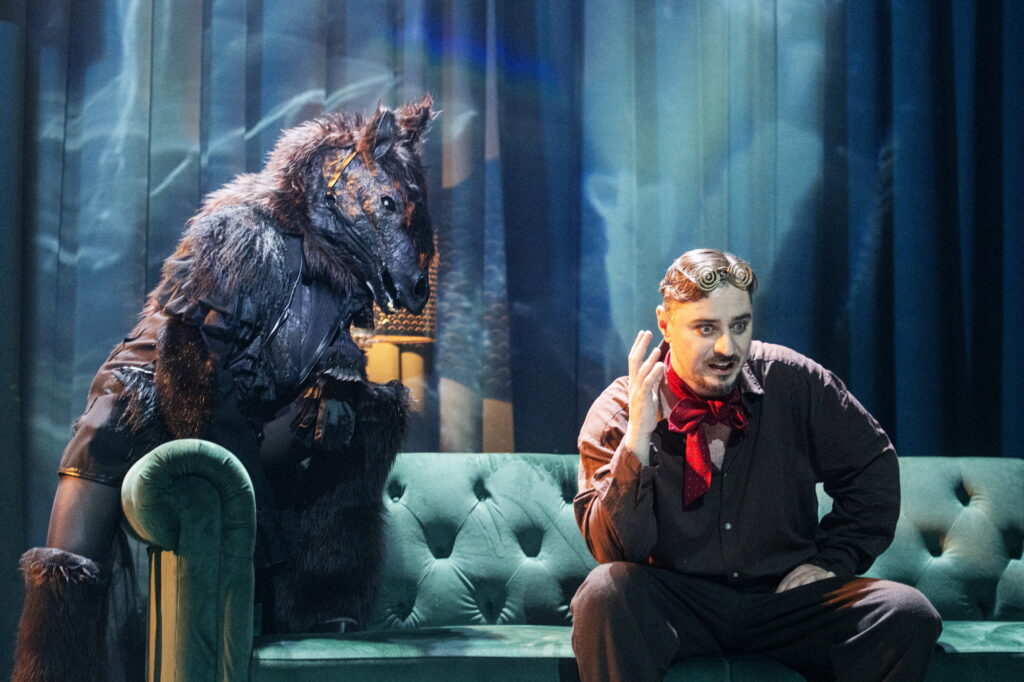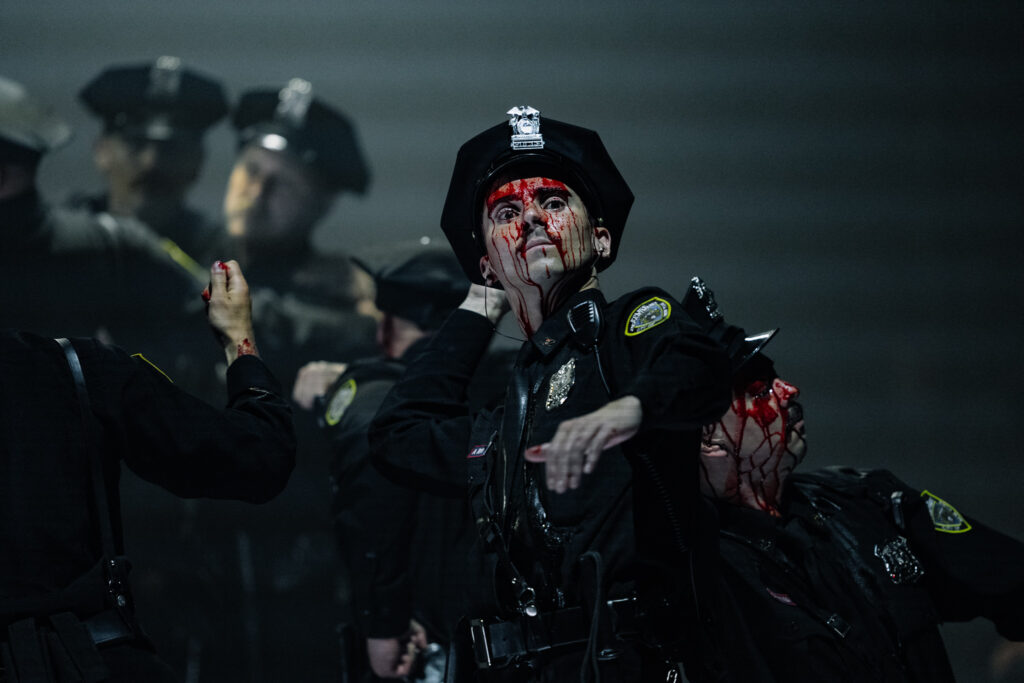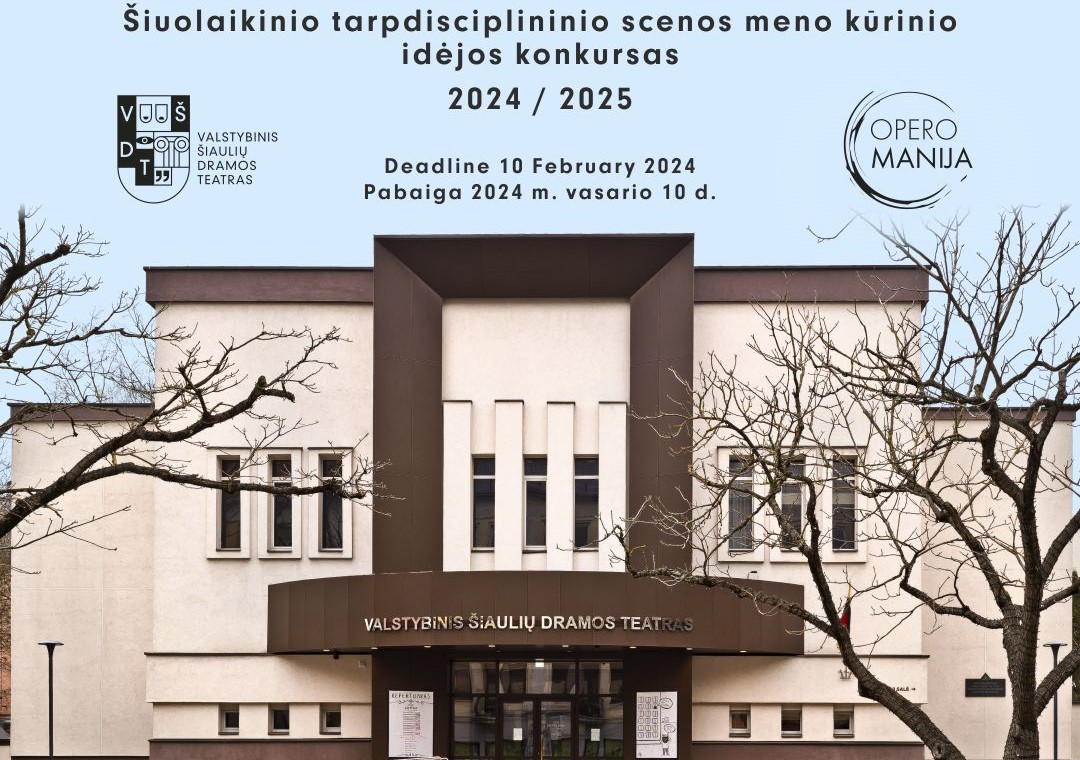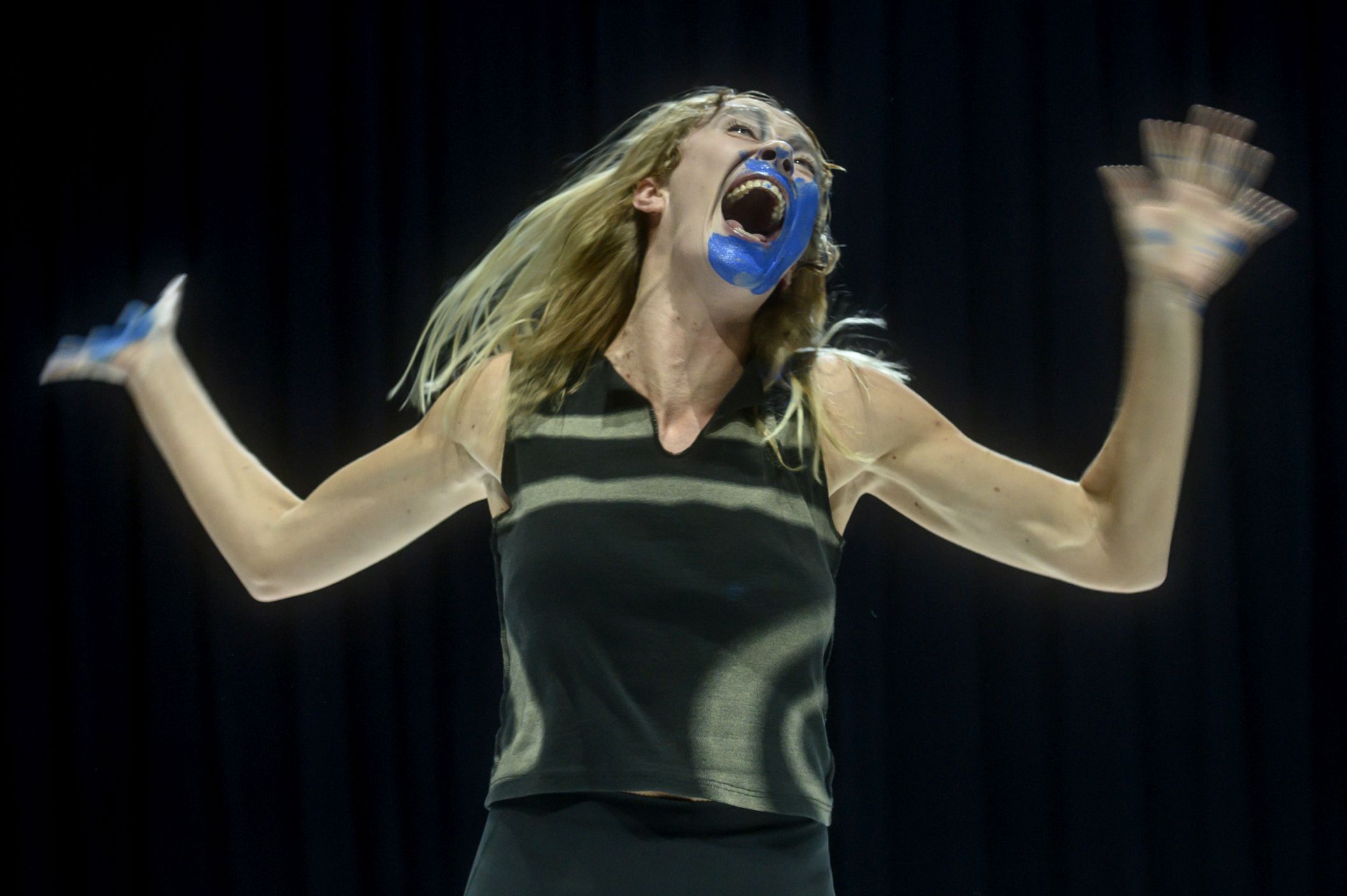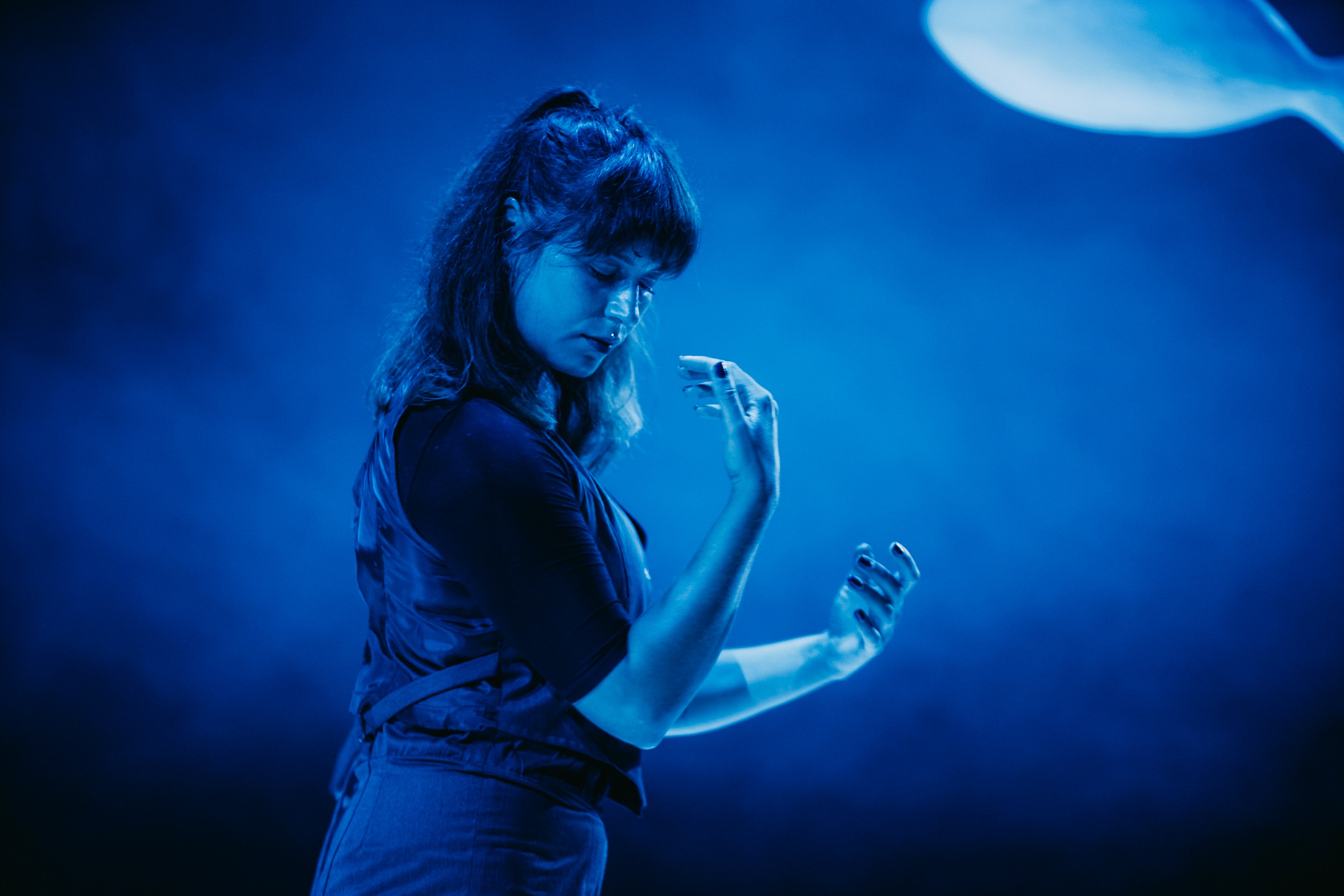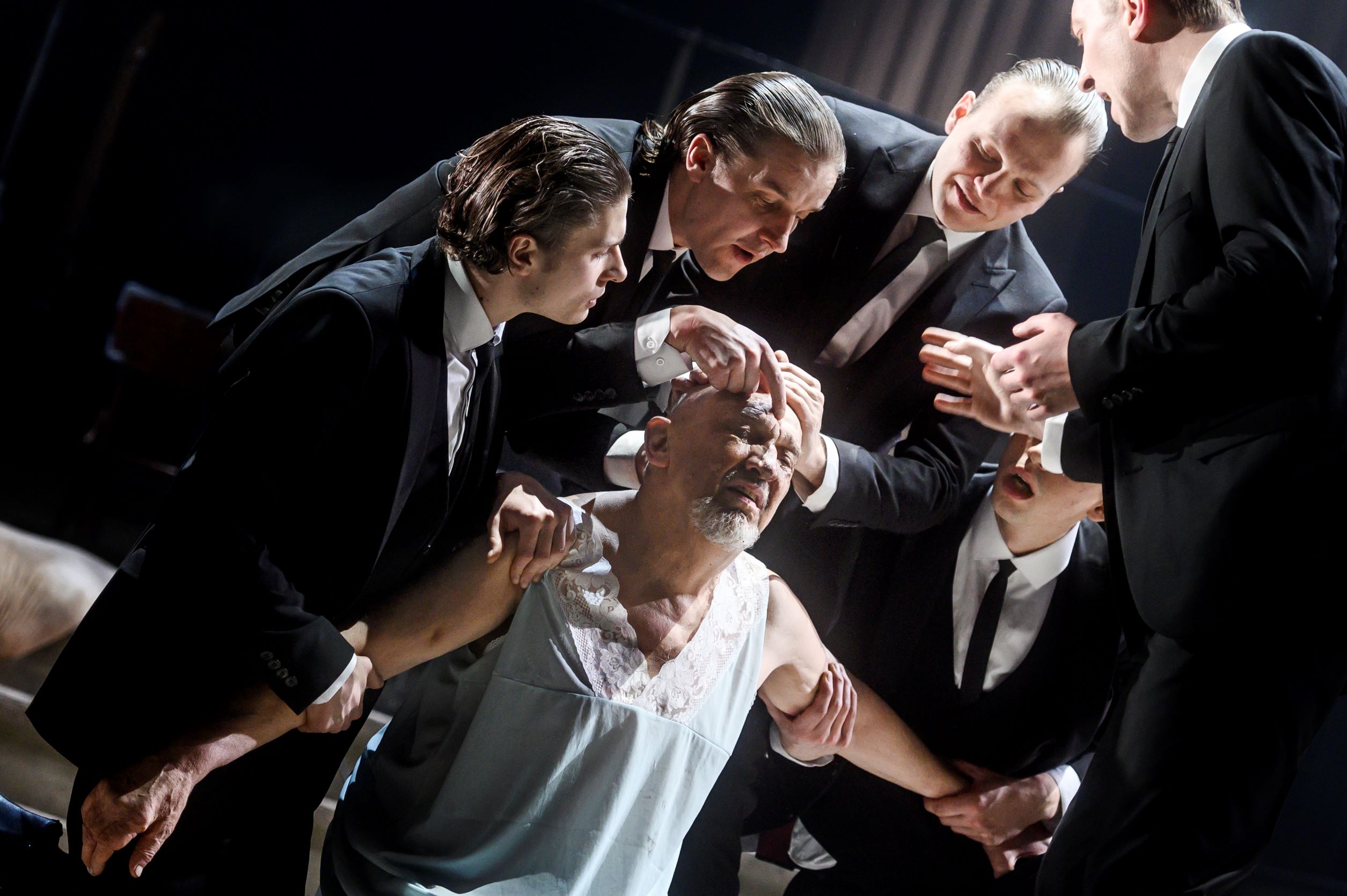
No, this is not a season review, since I did not follow every premiere. The text does not even cover most of the productions by Vilnius companies. Rather, it is a post-season reflection, prompted by several problems revealed by the works, contexts and assessments.
xxx
Assessment is the most obvious example of a struggle; it represents not only an opinion or “just a taste”, but also the recognition and affirmation of a certain event, even when the assessment is negative. Of course, the theatre awards are a kind of a game, everchanging within the context of each year's works, but even the nominations make the creators feel more secure in the territory they have carved out for themselves, otherwise the advertisements wouldn't announce “nominated for ...”. Surely, the Golden Stage Crosses are a compromise between jury members of different tastes and their sometimes completely contradictory opinions, but this year, alongside the announced nominees, I particularly missed the commentary that would justify the jury's decisions and would not allow us to question their professionalism. Because: what formula do we need to come up with to reject Robert Wilson's Dorian in a number of categories where it is undeniably the strongest? What excuses can be used to ignore the direction of Aleksandras Špilevojus' in Sala, kurios nėra [The Island That Isn't There], or the performance of Laurynas Jurgelis in that piece?
I fully understand that this is my struggle and my opinion. Someone else, who is not on the jury, might express their outrage. But the need to answer the question on how critics assess the productions keeps getting bigger and bigger.
xxx
The most obvious struggle of the season, which was not announced or perceived as a struggle or a competition - and yet it was - occurred between two theatres in the capital. The National Drama Theatre, which is saturated with diverse premieres by young directors, and the Youth Theatre, dragging gigantic blocks of literature onto the stage. The ambition of the manager of the latter theatre Audronis Liuga to “stage the unstageable” literature that is not intended for the theatre goes back to W. G. Sebald's Austerlitz (and if we recall Don Quixote, dramatization of short stories or Eimuntas Nekrošius' even earlier Zinc, it will line up into a solid row of “prose on stage”). This season, the theme of war has been extended even more poignantly by productions based on Jonathan Littell's Eumenides (or Erinyes?) and John Maxwell Coetzee's Waiting for the Barbarians. But that is literature. Whereas the performances were glimpses by guest foreign directors into this problem of both content and form, as if they were doubting the abilities of local theatre forces to deal with works of such heavyweight scope and themes.
Indeed, Krystian Lupa's ability to overcome such verbal layers is a guarantee, as he has repeatedly transformed literature of the highest quality into masterpieces for the stage (take Wymazywanie [Extinction] at the Warsaw Drama Theatre!). However, from the very first scene of Erinyes, Sergei Loznica persistently demonstrated that it is not enough to have a grasp of a vast amount of material and the ability to synthesise it working with European archives - it also requires the craft of a theatre-maker, which is very different from that of a cinematographer. Árpád Schilling, who, thanks to Liuga, has been known to us for almost 20 years now (maybe we should look for creators of a different tradition?), has revealed on our stage, not for the first time, that his pedagogical abilities and his work with the company are much stronger than his interpretative side (and I am glad in advance about his residence at the Klaipėda Faculty of the Lithuanian Academy of Music and Theatre). In Barbarians, the schemes of occupation and collaboration are perfectly highlighted, but the unconditional trust in Valentinas Masalskis only allows the actor to be on stage and demonstrate his physicality, while we can hardly talk about the shifting of literature and style.
And this is where the risk factor associated with guest directors comes into full play. They do not necessarily have to be seen as saviours (of the repertoire or of the company), and this season has demonstrated that perfectly. But what do you do when a theatre invites a director, hoping that he will maintain the style of his previous work - which is why he was invited - and he starts experimenting with material that may not be very characteristic of him? This is how Grzegorz Jarzyna's Solaris 4 that lasted for two seasons, said goodbye to the audience of the National Drama Theatre. From the very beginning it made everyone wince, since neither science fiction is a cosmos that this director has ever attempted, nor does Stanislaw Lem's work sound any more relevant in our universe.
And since the theatre has not discussed the choice of material from the very beginning - can a theatre manager, curator or playwright walk up to this year's great disappointment, Oliver Frljić, and say: you know, we've been trying metaphors for 50 years, we are tougher than you in this field - so you better state something about us that is more uncomfortable and more edgy than a naked actress. But the Kafkaesque metamorphosis happened to the director himself, who suddenly felt the burden of age and the need to mend his ways (I'll be 50 soon, he said), and in humble respect for the actors, he offered them to play the instruments they've been playing for ages anyway. And post-humanism or any other fashionable theme does not pave the way for art, especially, when in the finale of the piece a cockroach is sacrificed for the sake of the same equality of humans and animals, and we have to watch its slow death.
xxx
This season's major drama at the National theatre (Lithuanian National Drama Theatre) was presented backstage, when the theatre waved goodbye to the artistic directors. But the line of this theatre has become a form - the stage has turned into a national cinema, and one wonders why the descriptions of the performances warn of the use of smoke or strobe lights, but not of deafening sound and a constant imagery on the screen.
This theatre presents the work of creators through a beautifully renovated building and the possibilities of a new stage. However, media is no longer a challenge, but rather a clear and unacknowledged problem that young directors who grew up with smartphones like to emphasise. Paradoxically, microphones are used to avoid theatrically raised voices and to create the illusion of everyday speech, but what we hear is poor diction and loudly shouted unintelligible text. Medias also provide a distancing effect, which raises the question of whether directors really want to deprive actors (or characters) of their voices when the character is separated from the viewer by a couple of metres and his / her voice is coming from the ceiling.
The screen also becomes a trap: Eglė Švedkauskaitė even seems to invent a plot (a character will make a film) to justify the video broadcast in Fossilia. Antanas Obcarskas generally likes an aesthetically beautiful stage, and finds that the screen is beautiful as well. However, when high-resolution images do not create their own cinematographic or any other quality, merely duplicating the action on stage (even when they show what is “hidden” backstage or behind the screens), neither the characters, nor the concept of the performance, or the dramaturgy of the play, are given any additional meaning (Boxing, Rhinoceros). The National Theatre, thanks to its solid funding, can afford luxuries, but it is like using the Fabergé egg to crack nuts. There is no conceptual justification for the media, but these tools allow to hide weak dramaturgy (or strong dramaturgy by Georg Büchner or Eugene Ionesco are “corrected” by dubious rewrites) and themes that are watered down in the visual attacks - if any were present at the beginning of the creative work.
But the National theatre is not the only one: at the Youth Theatre, the screen at The End of Eddie (directed by Naubertas Jasinskas) is used to create the atmosphere, and this 1990s style is hardly intentional, which is matched by the neutral pastel sets and costumes of the same era, and everything seems to hide the social charge of the work under a kind of a pink veil. The film created by Gabrielė Tuminaitė at the Small Theatre in Vilnius poses a riddle - why would one spend half an hour repeating on stage what was just seen on the screen? This trick does not expand the space of Paulina Pukytė's play Scilla Wants to Be a Human, and perhaps serves only to stretch the time to a more “solid” performance format. But when a lot of creative energy is sacrificed for a precise shot, there is no energy left for the stage work of the actors, who can only be envious of what they themselves have created in “Dviračio žinios”. Liveliness of television defeats the stage.
xxx
That is why I am naturally more attracted to those performances that manage to do without our daily work companions - computers, telephones, the internet - simply reminding of the phenomenon of the actor's presence on stage. Fortunately, such things still exist, even in pure form: Testimonies by Oskaras Koršunovas and Antanas Obcarskas at the National theatre, where actresses undergo multiple transformations. To be themselves on stage (as much as possible) and to tell the story of Ukrainian women, at the same time showing how the story itself has been communicated to the actresses. Seemingly simple, because the stories are simple, without any stylistic peculiarities, and therefore they manage to achieve their goal: shocking and invoking sympathy, experienced together with the actress-listener-narrator, because the action, even though it has happened, is told and repeated in the here-and-now, thus affirming its universality.
This brings to mind another aspect of theatre and that is communication with the public. Deciding how to tell things that are relevant to it, dealing with themes that are important to the public and the creators, when the personal becomes common. It may seem paradoxical, but this is what Robert Wilson's Dorian at the Kaunas National Theatre offers in a radically different form (here I'm already leaving Vilnius), analysing the motifs of the creator, the narcissist, the admirer, which have flooded not only our country, and not only the isles of creativity. Amidst the director's myriad references, effects, stylistic requirements, set design and choreographic elements, Dainius Svobonas and Mantas Zemleckas remain exemplary actors, two sides of one person (and I have no idea how to separate them for assessment): one is ossified, tired, whimsical, the other is still bursting with youthfulness, lightness and all possible desires to conquer the world. Which one is more dangerous?
Next to it is the biography of another creator: the Panevėžys Theatre and Aleksandras Špilevojus set out to revisit the name that the theatre bears, but also the foundation of the city's identity - Juozas Miltinis. The Island That Isn't There also features the two sides of the maestro, youth and old age. And while Albinas Kėleris created a precise copy of his teacher, Laurynas Jurgelis had nothing to rely on. However, the young Miltinis was rendered in retroacting style - addressing what Miltinis' own creations would essentially look like today (just as the red “tragic” lighting occasionally reminded me of the colours in Dance of Death). The enormous material is astonishingly well controlled, the motif of the relationship between the creator and the authorities is rightly chosen, and there is an interesting parallel with Shakespeare's Prospero. It refuses to be confined to the theatre island, and even the director shall be forgiven for some lighter scenes - the play was created primarily for the townspeople, not for theatre scholars, and the sold-outs support the objective. However, The Island also speaks of the creators' ambitions: the orchestra from city's another theatre is invited, the acting efforts are made, and there is always a sense of boldness rather than audacity in the ambition to take a closer look at the most sacred icon - without diminishing it.
This performance, along with the diploma works of the students of the Academy of Music and Theatre, reminded me of another phenomenon that is often absent from the stage of non-students: passion. In today's theatre everything is rational, summed up, weighed up and not overdone - as if there were a managerial model run on stage, an analysis of energy costs and expenses. And no joy or passion to act, to create. Yes, the work might turn into a routine, but this speaks of the creator's own perceived place in society, his / her mission, the knowledge of his / her own path. If we look at the distribution of artists throughout different stages, we can see that, at least in Vilnius, most attention is attracted by the performances of the state theatres, many of which are staged by young artists. As the big names are retreating from the stage, the headhunting has intensified (and what other option do theatres have?), and the theatres that receive more financial resources are taking advantage of this disproportion created by the culture politicians (I will keep reminding that the ratio between the funding of state theatres and all non-governmental arts institutions was 15:1 in 2022). Therefore, satiated venues are waiting for new names, reinforcing them with incomparably faster spinning promotional and marketing mechanisms. However, the artistic aspects are left to the general tolerance, taste and the market. Thus, we can see a comfortable youthful bourgeois taste offered to the audience and flourishing in the theatre (it used to be an oxymoron!), which ensures the comfort of an audience and, at best, some “solidarity” with the oppressed and mistreated ones on stage. When burning topics are gently discussed, the illusion of a paradise of tolerance with hatred for the intolerant is created, and the participatory theatre (with strict instructions on how to do it) and multidisciplinarity are bluffed. Choreography appears in dramatic productions, necessary for the animation of form and not the theme, also revealing the choreographer's allowances for poor dancers. So-called post-drama is a complete fiasco, since it is more often about chasing the form, without questioning the necessity of the chosen style, rather than demanding professionalism. It is therefore gratifying that the “Art and Science Laboratory” is standing firm against such trends, attracting a different audience with works of a diverse nature. That Povilas Makauskas, who has been in various positions, is starting to create his own theatre, presenting - again! - a fine example of pure actor's theatre in That Episode of the Imagination We Call Reality, a contemplative and poetic, but truly disturbing performance based on the works by Fernando Pessoa. These are the cases when staging a play and making theatre become one.
-----
Projektą Menų faktūra: neužmegzti dialogai iš dalies finansuoja Spaudos, radijo ir televizijos rėmimo fondas (12 000 Eur)

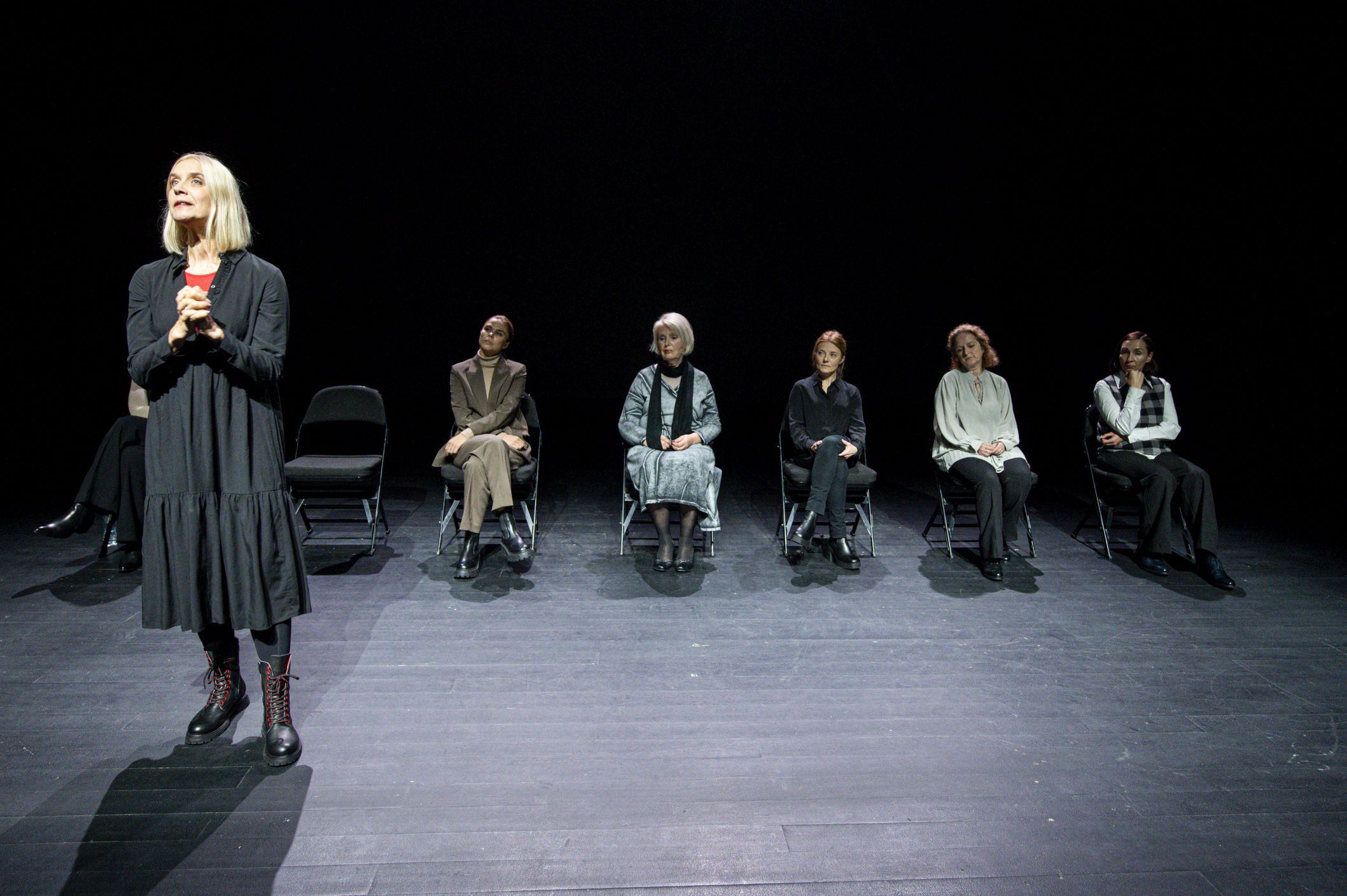
.jpg)
.jpg)


